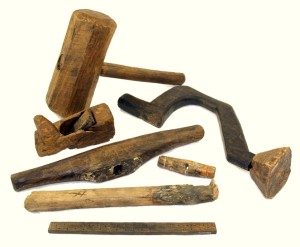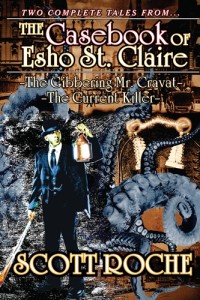I occasionally get asked for writing advice (which means some people think I know what I’m doing). One of those I most often get asked is, how do I write? Now, the smart ass in me wants to answer that with “just start pounding keys”. So as not to appear more of an ass than I usually do, I try and say something more helpful. Here’s one answer to that question, which is really “how do I write more/better/as awesomely as you do?”.
Location #1 (Butt In Chair) – This is really the most key of all locations. You need to get your booty in the seat, whether it’s in front of your keyboard or at a desk with pen and notepad. It may sound like I’m still on the smart ass train (TOOT TOOT! TICKETS PLEASE!!). Really and truly, you can find all kinds of excuses not to put yourself physically in the place to write.
I need to wash the dog.
I need to feed the kids.
I need to go to work.
I need to make the sweet love to my spouse.
Yes. All of these things needs must be done. If you want to write, though, this is key. This really looks like making the writing a priority. So, it’s a little more than the overly simplistic advice that it appears to be. But not much. If you want to write and you don’t do this one then the rest aren’t going to happen.
Location #2 (Writing Space) – This one can be tough. It’s going to vary widely from person to person. You need to find the right environment for you to write in. Yes, thanks to the wonderment of technology, one can write anywhere. The key is finding the place that works for you. The most idea may be a dedicated writerly shed a la Chuck Wendig. Not all of us are fortunate enough to have one of those. Heck, Chuck didn’t have one of those until recently. More realistically, it mean finding a place where you can minimize distraction and maximize productivity. I find that for me, the local coffee shop is a font of productivity for me. Paul Cooley likes to write at his local pub. You might find that those public places are too noisy or distracting in their own right. I can’t tell you what’s right for you. Once you find it, use it.
There are other elements to this like lighting, music, the necessary equipment, little tchotchkes. It’s all about making the space you’re in one that helps you get words on the page. If you don’t have this and you don’t have your butt in the chair then it can make the next location a pain.
Location #3 (Headspace) – This is one of the most important places to be, in the right headspace. This means that once you’ve put your butt in the chair and you’re in your preferred place in the universe, you’re in a good frame of mind to do the deed. There are a lot of ways to get into that headspace and it too varies from writer to writer. Here are some things that help me:
Have a plan – This can look like a really robust outline. It can also be just a sentence or two describing the next thing that will happen.
Tie your editor to a chair and gag them – I’m talking about your internal editor here. This is a trick to learn. It’s easier for some people than others. This is writing time, not editing time. One thing that’s helped train me is Write or Die. It puts me on a timer and screams at me if I slack off.
Good self care – You need to make sure that the basic biologicals are taken care of. You need to sleep. You need to eat right. You need to take your meds (if you’re on prescribed medication as many writers I know are). You need to poop. Don’t give yourself any reason to get up out of that chair once you’re in place.
Support – If you have a spouse, roommate, or other person in your life that can reassure you/kick your ass that also helps. This writing is a solo gig, but having people cheering you on/threatening you bodily is great motivation.
Now, there’s something I need to say here. You can still write anywhere! If you chose a pub and it’s closed on a day you want to write, have a backup plan. Don’t make this space a requirement for your writing to happen. It should be conducive to writing and hopefully make the words flow like sweetest honey, but I’m not giving you the excuse to only write in this space. If you’re just not “in the mood” then write a sentence or two and then write another sentence or two and see if that gets you there. None of these things are required for you to do the deed. Not having them shouldn’t stop you. They’re just things I know that has helped me.
So, what helps you? Give me the details on your locations and how you get to them.
Please consider visiting my Patreon page and supporting my monthly fiction output!



